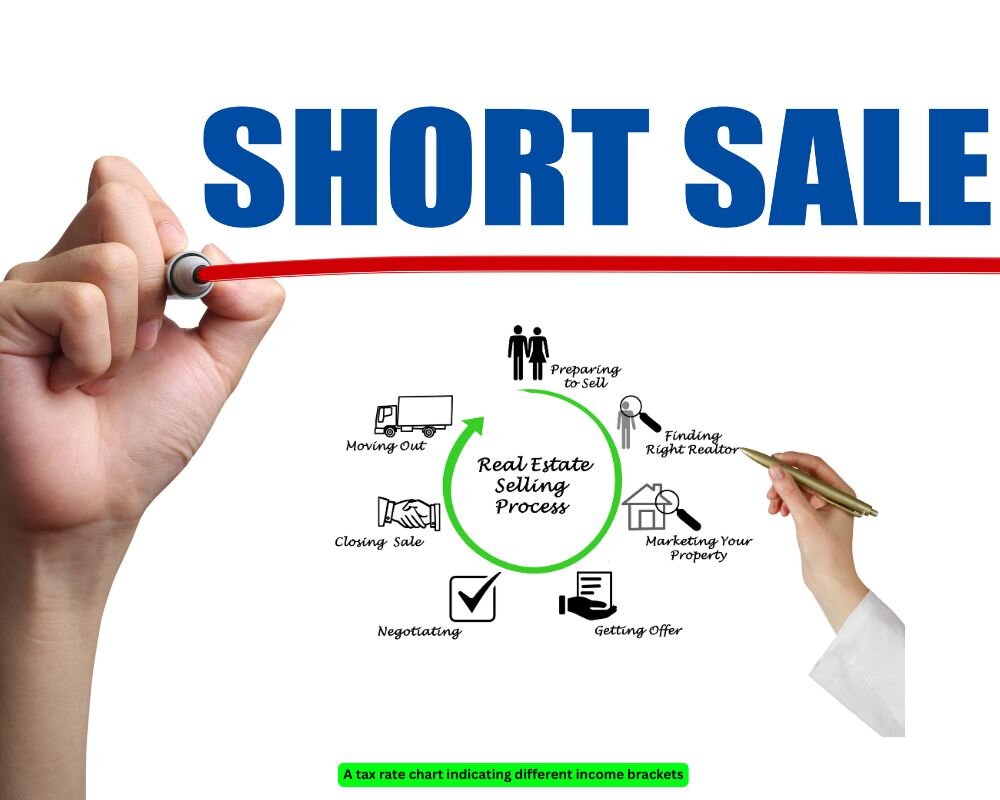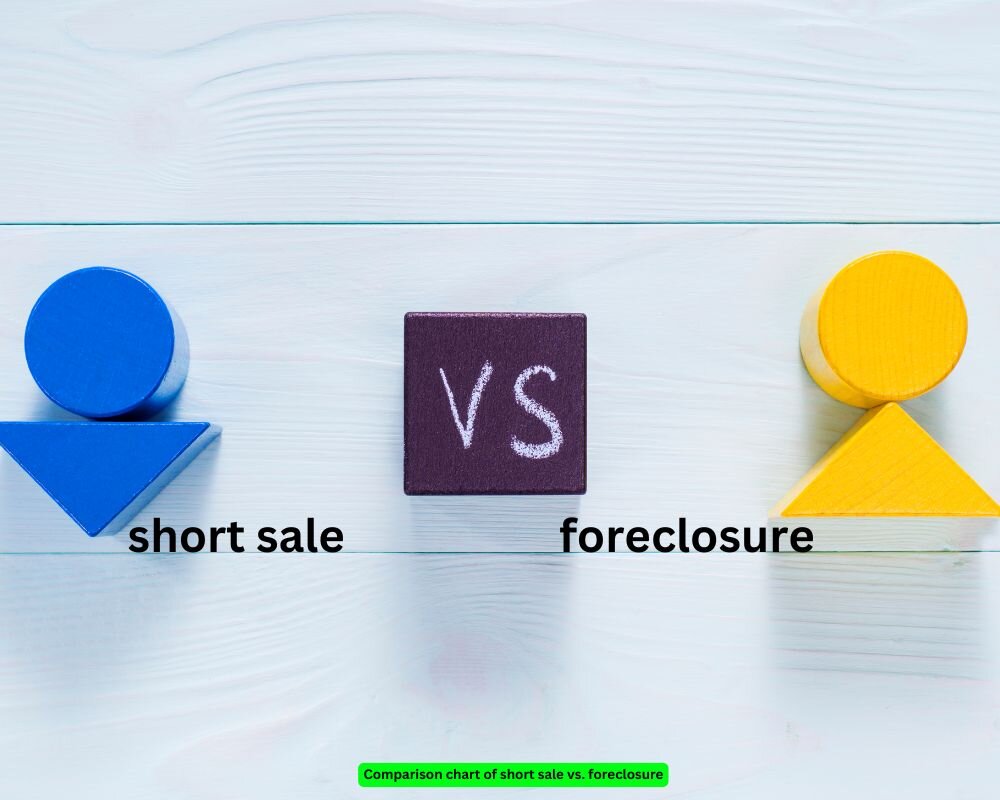
In the real estate world, money issues can push homeowners to look for different choices. A short sale is one option that helps. It lets homeowners sell their homes for less than what they owe on their mortgage debt, making it a valuable option for those facing financial troubles. However, a short sale transaction is far more complex than your average sale and can come with risk, as the process can take longer than expected. Before you decide to purchase, it’s important to know exactly what you’re getting yourself into, especially if you are considering it as a home-buying option. Let this guide arm you with the knowledge you need to navigate a short sale, which is similar to a traditional sale but with a few extra steps, and determine whether it’s the best home-buying option for today’s market.
Key Highlights
- Understand the Short Sale Process: A short sale offers a homeowner in financial distress a way to sell their property for less than the mortgage owed, requiring lender approval.
- Benefits for Homeowners: It helps avoid foreclosure, mitigates credit score damage, and offers potential debt forgiveness.
- Advantages for Buyers: Buyers can acquire properties at a reduced price, experiencing less market competition.
- Navigating the Process: Seeking guidance from experienced real estate agents specializing in short sales is crucial for both buyers and sellers.
- Legal and Tax Implications can be significant in a short sale generally, so it’s important to understand them. Consulting with real estate attorneys and CPAs is vital to understanding the complexities of short sales.
What is a short sale

A short sale happens when someone who owns a home is in financial trouble and sells their house for less than what they still owe on their mortgage. For this to work, they need the agreement of the mortgage lender, also known as the mortgage holder, in the context of a short sale in real estate. This lender must accept a lower amount to release the homeowner from their debt, especially when the housing market is in a down period, such as the 2007-2009 financial crisis, which caused home prices to plummet and sales to slow in many regions. Short sales tend to occur when the housing market is experiencing a downturn, leading to lower home prices and slower sales. The lender will want to get a property evaluation by reviewing recent sales of comparable properties to determine a market-supported sales price, also known as the sales price, that is acceptable to both parties involved in the transaction – the homeowner and the prospective buyer. In some cases, the lender may even write off the remaining debt as a loss, relieving the seller of any further financial responsibility.
Short sales often happen when homeowners face big money issues that make it hard to keep up with their mortgage payments. This option can help prevent foreclosure and is often considered one of the best alternatives to a short sale. It may reduce damage to the homeowner’s credit history and can help their financial situation in the future through the proceeds from the sale.
Benefits for Homeowners Facing Foreclosure

For homeowners dealing with the tough foreclosure process, a short sale can be a better option. By selling their home as short sellers, even if it means taking a loss, they can protect their credit score and future chances to borrow money.
A short sale also helps with high mortgage payments. It gives homeowners a new beginning while allowing them to avoid the shame and long-lasting effects that come with foreclosure.
Preparing for a Short Sale: Steps for Homeowners

Before starting a short sale, homeowners need to get ready properly. They should look at their financial situation, collect important documents, and work with skilled real estate experts.
It is important to show that you are facing financial hardship from the lender to facilitate a type of sale that works for both parties. Also, pricing the property right is key for a short sale to succeed and maximize the sale proceeds, as the price of the stock can fluctuate. Knowing these important things can help make the process easier and improve the chances of a good result.
Assessing Financial Hardship and Eligibility
Homeowners need to show clear signs of financial hardship for a lender to think about a short sale. They have to write a hardship letter that explains why they can’t keep up with mortgage payments and why a short sale is the best solution for both them and the lender. Adding documents like bank statements, proof of lost income, or medical bills can help make their case stronger and demonstrate that a short sale is the best solution for their financial status, especially when considering alternatives to a short sale.
The hardship letter should be thorough. It must discuss how serious and lasting the financial problems are. It should explain why the homeowners can’t stick to the original terms of the mortgage and why a short sale is the best option.
By building a strong case, homeowners can boost their chances of getting help from the lender. However, each lender has different rules and needs. So, it’s important to talk with them and understand what short sellers expect.
Compiling Necessary Documentation for Lenders
Once a lender says they will think about a short sale, homeowners need to gather all important financial documents. Bank statements show income and expenses. They help explain why you cannot keep up with mortgage payments, which can affect your ability to go through a short sale.
It’s important to give proof of income loss, medical bills, or other documents that show financial hardship. This makes your application stronger. Keeping these documents organized and easy to find helps the approval process go more smoothly.
Remember, being open and thorough matters when working with lenders. By providing the needed documents quickly, homeowners can build trust and show they want to solve the situation together.
Setting the Right Price: Market Analysis and Valuation
To get back as much money as possible, lenders need to set a realistic lower price for the property. This is key in drawing in buyers. Homeowners should work closely with real estate agents. They can look at similar properties and examine the current housing market.
Setting a price that is appealing but also fair can spark interest and help the sale go faster. It means finding a good balance. You want to get a high sale price. Yet, it’s important to recognize that lenders want to reduce their losses.
Keep in mind, that if the property is priced too high, it may stay on the market longer. This can push away potential buyers and stretch out the short sale process. Working with an experienced real estate agent will support a smart pricing method.
How to Click Cash Home Buyers Can Expedite the Process

Click Cash Home Buyers works closely with skilled real estate agents. They make the short sale process easier. Their knowledge helps put together a detailed short sale package that meets what lenders want. This improves the chances of getting quicker approval.
They show the homeowner’s financial situation and the market value of the property clearly. This helps in making the whole transaction go better. Their active methods and good relationships with lenders speed up the approval process. This helps lessen stress for homeowners.
Navigating the Short Sale Process with Confidence

The short sale process can be tough, but you can get through it if you have the right approach. It’s important to communicate well and work together, especially when considering options like a deed instead of foreclosure or a short sale. Keeping in touch with the lender and teaming up with an experienced real estate agent can help reduce stress during the process.
It’s also important to know the legal and tax issues involved. Getting help from real estate lawyers and tax experts who know about short sales can give homeowners a better understanding and help them avoid problems.
Initial Consultation with Real Estate Professionals
Hiring a skilled real estate agent who knows about short sales is very important for homeowners. In the first meeting, homeowners should talk openly about their financial situation. They need to show the agent the details of their mortgage debt and why they are considering a short sale.
A trained real estate agent will help homeowners through every stage. They will provide useful tips on how to set the price, market the property best, and negotiate deals. They serve as a link between homeowners and lenders, helping make communication clear and ensuring the sale goes smoothly.
Picking the right real estate agent can change the outcome of a short sale. Their understanding of the real estate market, strong negotiating skills, and good connections with lenders are very important for homeowners in financial distress.
Communication Strategies with Your Lender
Open and honest communication with your mortgage lender is very important during the short sale process. Homeowners need to keep the lender updated about their financial situation and any progress in selling the property.
Answering lender questions on time and being clear in communication shows honesty and helps build trust. This shows the homeowner’s commitment to solving the issue and working with the lender.
It’s good to remember that lenders have special loss mitigation departments that help homeowners who are having money problems. Talking with these departments and being open to exploring all your options can help you get a better result.
Marketing Your Home to Attract the Right Buyers
Marketing a short-sale property well takes a smart plan that focuses on the right buyers. Skilled real estate agents use different strategies to draw in potential buyers:
- Showcasing the Property’s Potential: By highlighting the positive features of the home and its possibilities for customization, agents can spark interest among buyers.
- Setting a Competitive Price: Choosing a realistic and competitive price that matches the current housing market is key to attracting offers.
- Using Various Marketing Channels: Using online platforms, hosting open houses, and offering professional photography helps to gain maximum visibility.
Working with a listing agent who knows the ins and outs of short-sale marketing can help speed up the sale and make it more successful.
Legal and Tax Implications of Short Sales
Homeowners need to know the legal and tax issues that come with short sales. A short sale usually affects credit history less than a foreclosure. Still, there might be problems like a deficiency of judgment. This happens when the lender tries to get back the rest of the debt, particularly in cases where they do not approve the short sale.
It’s also important to talk to a skilled tax expert who understands the implications of purchasing a short sale. Knowing about possible taxes, like capital gains taxes, helps homeowners make smart choices. This way, they can handle the financial parts of a short sale better.
Short Sale vs. Foreclosure: What Homeowners Need to Know
When facing money problems, homeowners need to know the difference between a short sale and foreclosure. Both end with losing the home, but a short sale gives homeowners more control. It can lessen the harm to their credit score and allow them to possibly work out a deal with the bank to manage their monthly mortgage payments. However, sellers need to consult with a HUD-approved credit counseling agency before making any decisions, as not all credit counselors or foreclosure rescue specialists are approved by HUD. This can help homeowners understand their options and make informed decisions about their financial future, including the possibility of credit counseling to navigate the process with confidence regarding urban development and its impact on their community.
On the other hand, foreclosure is a legal step taken by the bank. This has a much harsher effect on a person’s credit history and can limit chances to buy real estate in the future. Foreclosure, specifically judicial foreclosures, also brings extra fees and legal costs, adding more strain to the homeowner’s financial situation. Homeowners facing foreclosure should be aware of the differences between judicial and non-judicial foreclosures and seek legal advice to navigate the process with confidence.
Strategies for Buyers Interested in Short Sales

Buyers looking for a good deal in real estate may find short-sale properties interesting. However, it’s important to handle these deals carefully. Researching the property well is key. This means knowing its market value and potential repair costs before you make an offer.
Having an experienced real estate agent who knows short sales can help approve a short sale more efficiently. These agents can guide buyers through the complex negotiations. They work to make sure buyers get a fair purchase price while dealing with any challenges that come up in short-sale transactions.
Common Challenges in Short Sales and How to Overcome Them
Short sales can be helpful, but they also come with special challenges. Getting an approval letter from the lender can take time. This may cause delays. Buyers and sellers need to talk openly to deal with these issues smoothly.
Another challenge is the careful paperwork needed. Keeping a tidy file with all financial papers, like credit reports and property information, makes things faster. Being clear about these details leads to a better deal and lowers the risk of unexpected problems, especially since short sales are complicated.
Final Thoughts
Navigating a short sale can be tough. However, you can confidently move forward with the right information and help. It is important to understand the benefits, prepare well, and get professional advice if you are a homeowner facing foreclosure. With good planning and expert support, like what Click Cash Home Buyers offers, you can speed up the process and deal with common problems. By using key information and taking action, you can confidently face short sales and find a good result for everyone involved. Remember, making informed choices leads to better deals in the real estate market, particularly when investors are involved.
Frequently Asked Questions
How Does a Short Sale Differ from a Foreclosure?
In a short sale, the homeowner sells their home for less than what they owe on the mortgage. They do this with the lender’s approval. It helps them avoid foreclosure. Foreclosure is a legal action taken by the lender to get back the remaining balance on the mortgage.
Can I Buy a Home through a Short Sale with Bad Credit?
Buying a short-sale property with a bad credit score can be tough, but it is still possible if you find the right home on the market. Lender approval depends on other things, not just your credit score, especially when trying to approve a short sale. They usually look more at your financial ability and the condition of the property.
What Are the Risks of Buying a Short Sale Property?
Buying a short-sale property usually means you get it “as is.” You might be able to get the property for less money. However, buyers need to be careful. It’s important to do careful checks, as there may be hidden repairs that could cost more money later.
How Long Does the Short Sale Process Typically Take?
The short sale process usually takes longer than regular sales. It can take several months. This is because the mortgage lender is involved and needs to give approvals. The time it takes can change based on lender approval and the housing market conditions.
Can a Homeowner Benefit from a Short Sale Instead of Foreclosure?
Yes, a short sale is better than foreclosure. It helps homeowners skip the severe effects of foreclosure on their credit history. This option provides a gentler way to handle financial stress and escape from mortgage payments that are too hard to manage, allowing homeowners to sell short.
How to Click Cash Home Buyers Facilitated a Win-Win Situation
Click Cash Home Buyers shows new ways to solve problems in real estate, particularly for short sellers. They help both homeowners and lenders find good outcomes in the process of going through a short sale. Their skill in making quick sales is great for homeowners who need help with tough financial problems.
They make the short sale process easier and ensure fast closings. This helps reduce the stress and uncertainty that usually come with regular real estate deals.
Their goal is to offer fair market value to homeowners, especially when discussing the proceeds of the sale. They also can handle tricky lender rules. Because of this, they are a reliable choice for people who want to sell their homes easily and confidently.

Contact Us
We would love to hear from you! Please fill out this form and we will get in touch with you shortly.

